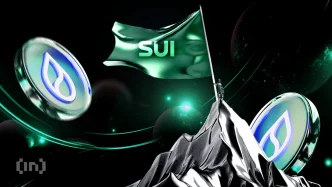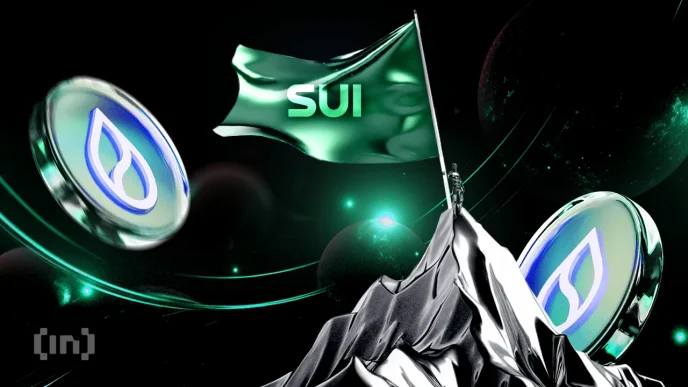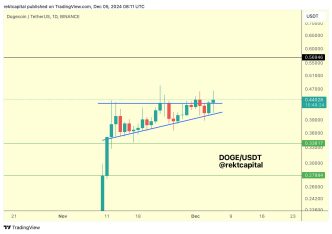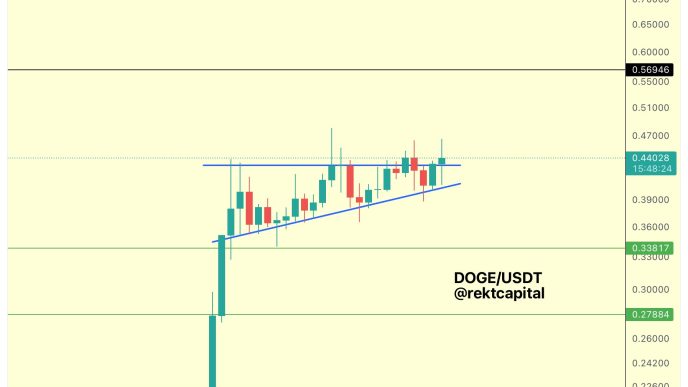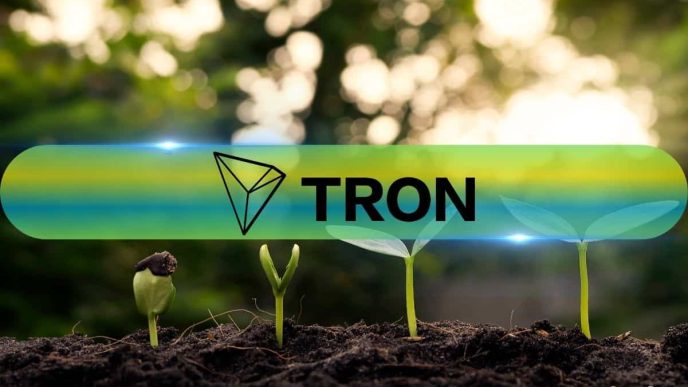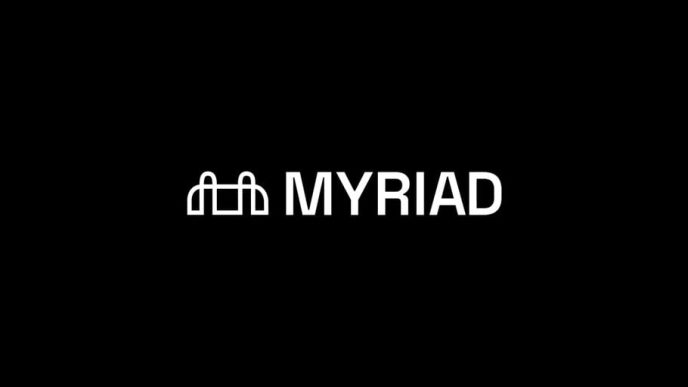Memecoins undoubtedly capture a big slice of crypto observers’ attention — even if not everyone is a fan. But data shows they’re gobbling up a growing amount of the crypto economy too.
The sector — powered by the likes of dogecoin (DOGE) and Shiba Inu (SHIB) — made up 3.16% of the combined market capitalization of all cryptocurrencies on Dec. 1, up from 1.3% at the beginning of the year, according to a new report from crypto exchange CEX.IO. If you exclude crypto titans bitcoin (BTC) and ether (ETH), memecoin market share jumps to 11.21% from 4.2%.
That equates to big dollars: more than $140 billion of market value, per CoinGecko data, stashed in cryptocurrencies that don’t pretend to have any utility. Extremely volatile by nature, they tend to be named after animals, viral internet jokes and political figures or events.
As bitcoin topples the $100,000 threshold for the first time, memecoins are also rocketing higher. Dogecoin has soared 168% since Donald Trump’s election spurred throughout the crypto market. Dogecoin is now the seventh-largest cryptocurrency by market cap at $64 billion, according to CoinDesk data.
The question is whether this is just how things work in the early stages of a bull market these days, or a harbinger that things have gotten overheated.
“In previous cycles, memecoins typically experienced their largest capital rotation toward the end of the post-halving bull run,” Alexandr Kerya, vice president of product management at CEX.IO, told CoinDesk in an email.
“Halving” refers to the once-every-four-years event — the most recent one was early in 2014 — when the reward for mining bitcoin gets slashed by 50%, which often correlates with crypto gains.
“However, this cycle stands out due to the significant rise in memecoin influence occurring well before the halving, and persisting even during bitcoin’s consolidation mid-year,” Kerya added.
The oldest memecoin, dogecoin, was created as a joke in 2013 and gained significant attention during the bull market that ended in 2021 as Tesla CEO Elon Musk repeatedly posted about it on social media. Other dog-themed coins, like SHIB, rode on DOGE’s coat-tails and reached billions of dollars of valuation. Over time, memecoins came to be considered as a crypto investment category in their own right, in the same vein as decentralized finance (DeFi) tokens, artificial intelligence tokens or privacy coins.
“While memecoins may eventually reach a plateau, similar to DeFi, the market is still in the process of determining where that equilibrium will be established,” Kerya wrote.
Eating up market share
The memecoin sector underwent explosive growth early this year, the report said, when the daily number of projects deployed on Pump.fun — a Solana-based crypto project that makes it easy for users to launch tokens — went from a few dozen a day in February to thousands per day in March. Nowadays, over 60,000 memecoins are created daily, half of them through Pump.fun, the report said.
As a sector, memecoins saw a 330% increase in their combined market capitalization over the period from Jan. 1 to Dec. 1, the report said. For comparison, bitcoin is up 140% since the beginning of the year, while ether is up 71%. Memecoin trading volume grew 979% in the same period, and now accounts for 5.27% of the entire crypto market’s volume. Furthermore, memecoins retained significant volume in June while other sectors of the crypto economy saw declines.
“As a gateway for new investors, the growth of memecoins highlights the increasing influence of retail-driven narratives in the crypto market. As a sentiment bet, it reflects market optimism and the anticipation of a continuation of the post-halving rally,” Kerya wrote. “However, with increased share of memecoins, it also highlights the potential for the faster appearance of speculative bubbles. While this could amplify the intensity of a bull run, it might also shorten its duration.”
The memecoin sector has changed over the years. Dogecoin and Shiba Inu dominated trading volume and market capitalization in 2021. In contrast, 2024 has seen a wide variety of newer memecoins — such as dogwifhat (WIF), Brett (BRETT), Peanut the Squirrel (PNUT) and Popcat (POPCAT) — crack (or come close to) the top 100 coins by market cap.
And whereas the majority of the largest memecoins were dog-themed up until March, cat-themed and AI-themed tokens have been stealing market share from dog tokens. Political memecoins also fared well into the U.S. election in November, after which they saw an 80% drop in trading volume.
The networks on which trading activity occurs have also shifted. Dogecoin has its own proof-of-work blockchain, which mimics the Bitcoin network’s. Ethereum-based memecoins such as pepe (PEPE) and MAGA (TRUMP) have also seen some popularity. But Solana, thanks to Pump.fun, is the big winner of the memecoin craze in 2024; the network accounts for 30% of the sector’s trading volume, and 15% of memecoin market cap is based on it.
However, Telegram’s TON network’s memecoin trading volume grew 750 times in the last six months, even though the blockchain still only accounts for 1% of the total memecoin market cap.
“Given memecoins’ ability to boost retail involvement and revenue generation for DeFi platforms, 2025 could see stronger integrations between launchpads and decentralized exchanges to capitalize on this trend,” Kerya wrote. “However, in ecosystems like Solana, heavy reliance on memecoins has raised concerns and could eventually backfire, straining its broader development.”
Source link
Tom Carreras
https://www.coindesk.com/markets/2024/12/05/memecoins-reach-140-b-market-cap-and-gain-ground-in-crypto-economy
2024-12-05 21:25:49



